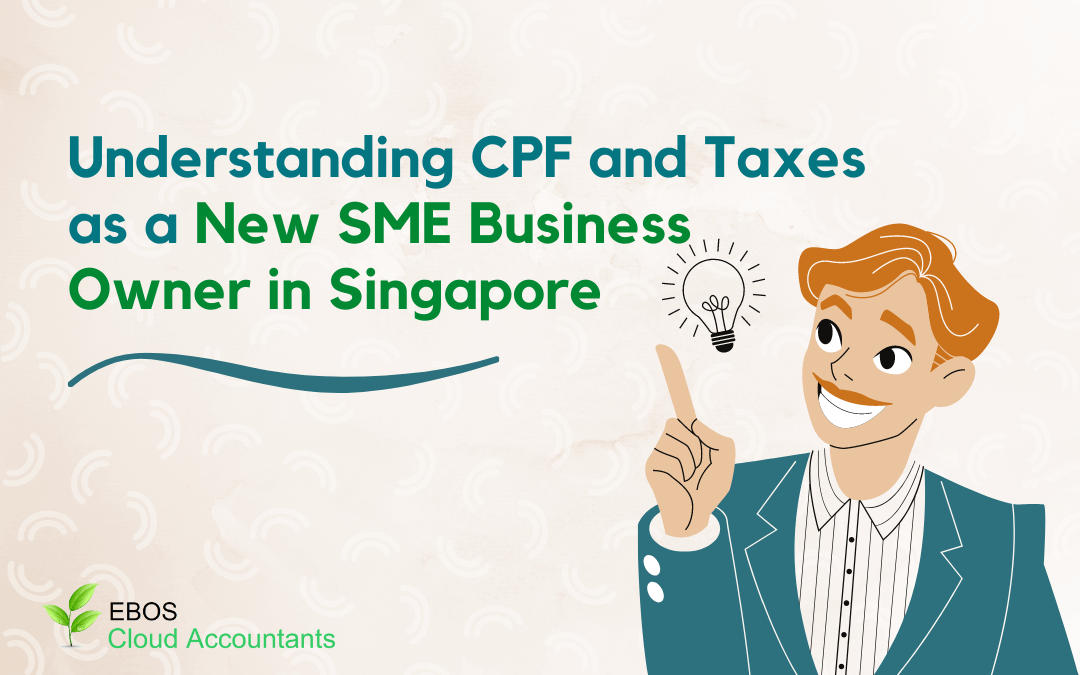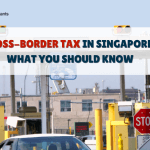Tax is a complex and ever-changing topic. As a small and medium business owner in Singapore, you are taxed differently from an individual. It’s important to understand the regulations, rates and how it applies to you as a small business owner in Singapore. We’ll take a look at some of the basic tax implications for business, including CPF, income taxes, and GST.
We recommend that companies engage vendors as needed, including us at EBOS SG, for corporate tax services or filing corporation tax whenever necessary, as well.
The different types of taxes
While there is a wide variety of taxes to be paid to the Singaporean government, we focus mostly on the types of taxes that new owners should immediately be concerned with. Other types are slightly more complicated and can be addressed once the new business owner is a little more familiar with the basic types of taxes.
The first is CPF, which include payments to be made to the Central Provident Fund governmental authority in addition to the basic salary that is paid to employees. The second is income tax, which are payments to be made to the government based on how much the company earns. The third is the Goods and Services Tax (GST), which is an additional cost imposed upon any purchases, and then paid to the government.
CPF
CPF payments are monies paid to the government on behalf of your employee, into a government-kept account that can later be used for other things, including healthcare payments and retirement funds. CPF payments are simply identified as follows:
For a Malay employee whose monthly basic salary is 3,000 SGD, the breakdown is as follows:
| CPF Payment Type | Description | Example |
| Employee’s Share | Deducted from basic salary | 600 SGD |
| Employer’s Share | Paid by the employer on top of basic salary | 510 SGD |
| Self-Help Group Contribution | Varies based on employee’s ethnicity.
Paid to various ethnic groups associations. |
6.50 SGD |
| Skills Development Levy | Paid to CPF, channelled into Skills Development Fund
Minimum $2, maximum $11.25. 0.25% for anything in between. |
7.50 SGD |
Thus, although his basic salary is 3,000 SGD:
- The employee receives in his bank account only 2,400 SGD.
- The employer must pay a total of 600 + 510 + 6.50 + 7.50 = 1,124 SGD to the CPF.
To make things easier, use the following links:
- CPF Contribution Calculator
- CPF Self-Help Group Contribution Guide
- CPF Skills Development Levy Guide
Corporate income tax
Any money earned by your small/medium business will be taxed by the government via corporate income tax as it is 17% as of November 2021. The tax is calculated after the end of your chosen financial year (referred to as the Year of Assessment, or YA), and is then to be paid to the government. It can be paid in one go, or in instalments.
There are some nuances for new companies, and IRAS has created a start-up kit to guide new owners along, which can be found here:
There is an additional filing that companies may need to make for their employee’s income tax, but these taxes are borne by individuals. Companies only need to register their employee’s earnings, which can be done via a different service.
The Goods and Services Tax
The Goods and Services Tax, or GST, is an additional tax levied upon financial transactions. You see them sometimes when eating out at restaurants. It’s a flat rate of 7%.
Fortunately, the GST isn’t immediately mandatory; it is only when the business records a turnover revenue of over S$1 million that the government mandates the implementation of GST in sales. It’s also levied on goods and services that are imported from overseas; as such, the provision of international services such as design services for an international client is not liable for GST, and the international client does not have to bear this cost.
The levy itself is paid for by the customer (indirect taxation) rather than the company itself. That’s why the GST amount is reflected on the receipts, and the customer must pay them. Similar to corporate income tax, GST payments are due at the end of the YA.
In summary
Understanding the different types of taxes is an important part of your finances. Knowing what tax you’re paying will help you plan and budget for the future. Many aspects of confusion can be alleviated as well through the use of cloud accounting services, which take all of these calculations into account and help the process along.
If this article has left any questions unanswered, please feel free to contact EBOS! We’ll be happy to answer them or point you in the direction of a resource that may provide more information about understanding these complicated topics, and are happy to provide consultations on corporate tax services in Singapore or assist with filing corporation tax.







